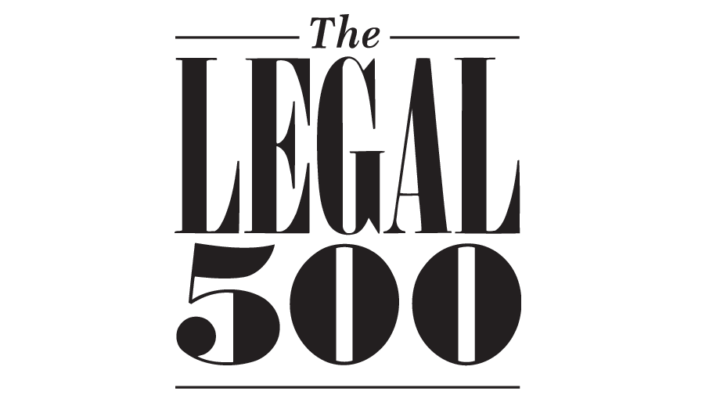BCL Associate, Daniel Jackson, examines the recent surge in online abuse faced by sports professionals, most notably those in the world of football, and considers whether the only option is the closure of social media accounts.
The sad reality is that rarely a day goes by without a sports professional, often a footballer, suffering some form of online abuse.
Clubs, whose players are being subject to the abuse, frequently of a racial nature, are calling on the social media platforms to take action. Premier League managers have proposed a football-wide boycott of social media to fight against the persistent abuse and discrimination, with several other clubs staging week-long boycotts. An FA spokesperson recently said, ‘We fully support any club or player that wishes to take a stand against any form of discrimination in a respectful manner, including the boycott of social media platforms.’
Former professional footballer, now turned coach, Thierry Henry, recently announced that he is walking away from various social media platforms until more is done to tackle the issue. The former Arsenal player claimed that those in power need to better regulate their platforms, referencing the ‘vigour and ferocity’ currently applied to the infringement of copyright.
Taking a slightly different approach, Liverpool captain, Jordan Henderson, has relinquished control of his social media accounts to the charity, Cybersmile, who describe racial hatred online as ‘spiralling out of control’.
Obviously, such conduct is not limited to footballers in the English Premier League – every individual with a social media account is at risk of being abused by persons, both known and unknown to them.
But is it just the likes of Facebook, Twitter and Instagram that need to do more? In September 2020, the Law Commission launched a consultation paper on communication offences, with a view to reforming the criminal law in this area, so that there is clearer and more effective targeting of the harm and criminality behind online abuse.
Communication offences
If an individual sends threatening, abusive or offensive messages via a social media platform, they may commit an offence.
According to section 1 of the Malicious Communications Act 1988, it is an offence to send certain types of communication to another person that conveys a message which is indecent or grossly offensive, a threat, or false – where one of the sender’s purposes is to cause ‘distress or anxiety’ to the recipient or another person.
Section 127(1) of the Communications Act 2003 makes it an offence to send, via a public electronic communications network, a message (or other matter) which is ‘grossly offensive or of an indecent, obscene or menacing character’. Section 127(2) of the same Act criminalises the sending of a message which is false, or persistently makes use of a public electronic communications network; and is for the purpose of causing ‘annoyance, inconvenience, or needless anxiety’ to another.
Such inappropriate communications may also amount to harassment or stalking, if there is a course of conduct.
Changes in the law
The Law Commission considers that reform in this area is necessary in order to protect victims from harmful online behaviour. It is thought that the above communication offences are somewhat overlapping, ambiguous and arguably unclear for those seeking to manage and/or abide by them.
I would encourage any criminal practitioner to read the consultation paper, which proposes a new offence to criminalise behaviour where a communication would ‘likely cause harm’. The offence would cover emails, social media posts and WhatsApp messages, as well as communications sent over private networks, such as Bluetooth or a local intranet; ‘pile-on’ harassment would equally be recognised. The paper also recommends an update to section 66 of the Sexual Offences Act 2003 to cover ‘cyber-flashing’, the unwanted sending of images or videos of an individual’s genitals.
The Law Society engaged in the consultation, highlighting that the law in relation to such offences should be updated to reflect the methods of communication in the world today. The importance that any new offence is clear has been emphasised, so that members of the public know with certainty what conduct is permitted and what will amount to an unlawful act.
Social media companies
In February 2021, the Football Association and Premier League wrote to Facebook and Twitter calling for harsher punishments to eliminate racism and anonymous users abusing others in the sport.
Suggested remedies include filtering and blocking offending messages before they are sent and preventing users who have previously sent abusive content from re-registering with the particular social media platform.
The ability to identify the offending user is key, which requires an enhanced verification system and allows for accurate personal details to be shared with the police, if appropriate.
What now?
The Law Commission’s consultation period ended on 18 December 2020 and they are now analysing the high number of responses to the consultation, with the final recommendations to be published this year.
Social media companies will soon have to react more rigorously and rightly acknowledge their duty of care to protect users, as a result of the government’s proposals for the Online Safety Bill later this year.
Whilst reforming the law, it remains important that our fundamental rights are respected, namely privacy and freedom of expression.
Criminal law and regulatory reform will no doubt prove to be important, but education and cultural change must continue to be a priority.




